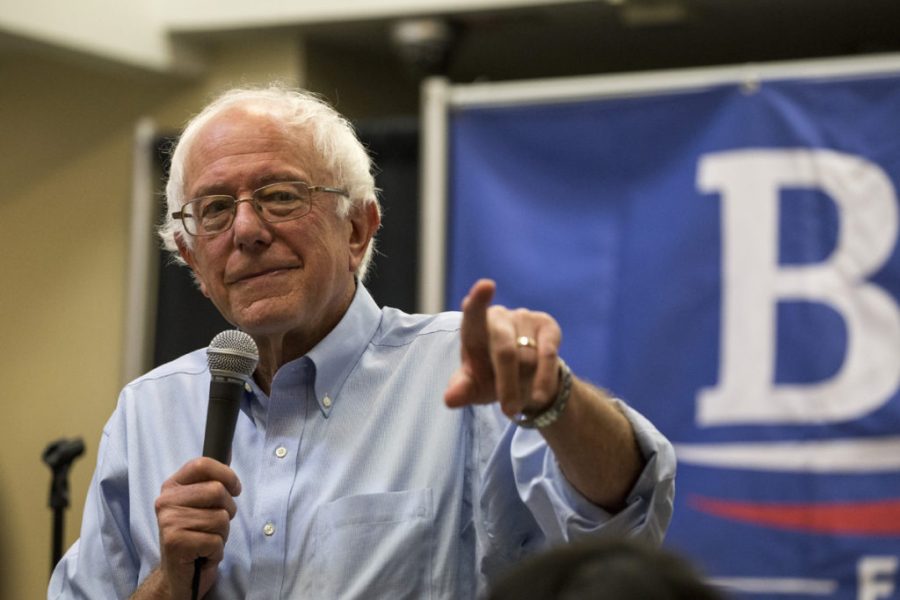As humans, we seem to be hardwired to appreciate a good comeback story. In the United States, we find ourselves in the midst of two unlikely, but enthralling, real-time comeback narratives: those of Ted Cruz and Bernie Sanders. Each candidate has fallen behind in their race to the White House and each faces massive odds. Cruz, not complacent within the “yuge” and clownish shadow of the Donald, must show he is louder and more principled in his systematic crippling of American democracy. Sanders, already boisterous and principled, must prove to the American people that he can not only win big non-Western primary states, but also win in the general election. The deck is stacked against these two candidates, and yet, their runs each cling to the semblance of hope.
Cruz caught a glimpse of a resurgence when the election in Utah swung commandingly in his favor. Pundits may speculate this had to do with Mitt Romney’s sudden endorsement of anyone but Trump, or Trump’s many persecutory remarks (which fall rousingly on the ears of Utah’s historically-persecuted LDS majority), or Trump’s pandering to a blue-collar demographic many LDS workers can’t identify with. Whatever the combination of reasons, Utah handed Cruz his most decisive victory yet (at nearly 70 percent of the vote) and put what many consider a halt on Trump’s domineering early election momentum. Whether or not the Utah caucus will be enough to sufficiently derail Trump’s campaign remains to be seen; at best, anti-Trump pundits can only hope for the possibility that Cruz sweeps many of the remaining states and sends the nomination’s decision to a brokered convention in Ohio (at which Trump will likely be trounced).
The future of Bernie Sanders looks slightly different. Down only a few hundred delegates (admittedly, this margin doesn’t take into account the yet-to-be-pledged superdelegates), Sanders only needs a little over 57 percent of the remaining delegates to secure the nomination. Given his commanding victories in five of the last six races — in Idaho, Utah, Alaska, Washington and Hawaii — it seems likely his momentum will lead him to achieve upsets in a few of the remaining states. His message appeals most effectively to young millennials, so it’s not hard to imagine Sanders’ success being made or broken at the hands of youth voters who decide whether or not to turn out. Regarding his electability, Sanders said it best: “Don’t let anyone tell you we can’t win the nomination, or win the general election.” It seems this message is not without its own peculiar truth. Sanders’ chances are very much average, despite the media’s portrayal of his victories as enigmatic and his future success unlikely.
What’s yet to be discussed is the value of the candidacies of Ted Cruz and Bernie Sanders. The Republican nomination at this point is a fight for the lesser of two evils. Cruz is, almost unbelievably, the better choice. Trump’s egomaniacal power trip has shown that the mogul is willing to say whatever he has to to get the nomination. Cruz is undoubtedly principled. Compliments to the Sanders campaign sound similar. Against the backdrop of Hillary Clinton, Sanders is a radical leftist intent on supporting progressive American values free from corporate influence. Clinton, the middle-of-the-road candidate, is far more hawkish and far less trustworthy in the eyes of young voters. How much of this perception has been built by negative media portrayals and contrived political scandals is up for debate. What’s clear, however, is that both Cruz and Sanders offer alternatives to the either wacko or deeply entrenched frontrunners.
It’s unknown whether Cruz or Sanders will hedge inspiring comebacks this election cycle. It’s clear that in either case the possibility of an upset exists. If anything, we must be grateful they persevere, as they are at this point the only plausible challengers in an implausibly stacked election. Come July, let’s hope they’ve each been given their due and we don’t take Clinton or Trump at face value.


